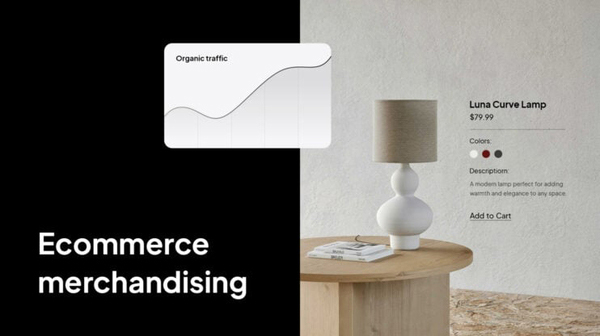Creating Website for Small Business Solutions
A Beginner’s Guide to Creating Website for Small Business
Creating Website for Small Business
Building a website can be an intimidating task, especially for those who are not familiar with coding or web design. Thankfully, there are many website builders available that make the process easier and more accessible for everyone. However, with so many options on the market, it can be challenging to find the most affordable website builder that still offers all the features you need. In this article, we’ll explore some of the best budget-friendly website builders that will help you create a professional-looking website without breaking the bank.

A Beginner’s Guide to Creating Website for Small Business
Creating Website for Small Business
Website templates offer a convenient and cost-effective solution for those who are looking to create a website without having to start from scratch. Instead of hiring a web designer to build a custom website, templates provide a ready-made design that can be easily customized to fit the brand and content of the site. This saves time and effort in the development process, allowing individuals and businesses to focus on creating high-quality content and engaging with their target audience.
There are many benefits to using website templates, one of the most notable being their ease of use. Templates are designed to be user-friendly, with drag-and-drop functionality and customizable features that make it easy for anyone to create a professional-looking website. This is especially beneficial for individuals and small businesses who may not have the technical skills or resources to build a website from scratch. With a template, they can simply choose a design that fits their needs, customize it with their own content and branding, and have a fully functional website up and running in no time.
Another advantage of using website templates is the cost savings. Hiring a web designer to create a custom website can be expensive, with costs ranging from hundreds to thousands of dollars. Website templates, on the other hand, are much more affordable, with many free or low-cost options available online. This makes it a cost-effective solution for individuals and businesses looking to create a professional website on a budget.
In addition to cost savings, website templates also offer flexibility and scalability. Templates are designed to be responsive, meaning they can adapt to different screen sizes and devices, ensuring a seamless user experience across all platforms. This is crucial in today’s mobile-first world, where more and more people are accessing websites on smartphones and tablets. With a responsive template, businesses can reach a wider audience and provide a consistent user experience, regardless of the device being used.
Furthermore, website templates are constantly being updated and improved by their creators, ensuring that users have access to the latest design trends and features. This means that businesses can keep their websites looking fresh and modern without having to constantly redesign their site. Templates also come with built-in features and functionality, such as SEO optimization, social media integration, and e-commerce capabilities, making it easy for businesses to enhance their online presence and reach their target audience.
While website templates offer many benefits, it is important to choose the right template that fits the needs and goals of the website. There are many different types of templates available, ranging from simple one-page designs to more complex multi-page layouts. It is important to consider factors such as the type of content being displayed, the target audience, and the overall branding of the business when selecting a template. Additionally, it is important to customize the template to make it unique and reflect the personality of the business.
Web hosting providers offer various types of hosting plans and services to accommodate the needs of different websites. From shared hosting to dedicated servers, there are several options available for individuals and businesses looking to host their websites online.
Shared hosting is the most popular and affordable type of web hosting. With shared hosting, multiple websites are hosted on the same server, sharing its resources such as CPU, RAM, and storage space. This type of hosting is ideal for small websites with low to moderate traffic. However, shared hosting may not be suitable for websites that require high performance or resource-intensive applications.
VPS hosting, or Virtual Private Server hosting, is a step up from shared hosting. With VPS hosting, websites are hosted on virtual servers that mimic dedicated servers. Each website on a VPS server has its own dedicated resources, such as CPU, RAM, and storage space. This type of hosting is ideal for websites that require more control and flexibility but do not need a dedicated server.
Dedicated server hosting is the most powerful and expensive type of web hosting. With dedicated server hosting, websites have their own physical server dedicated solely to their needs. This type of hosting offers maximum performance, security, and customization options. Dedicated server hosting is ideal for websites with high traffic volumes, e-commerce websites, and large enterprises.
Cloud hosting is a relatively new type of web hosting that utilizes cloud computing technology to host websites on virtual servers. With cloud hosting, websites are hosted across multiple servers, providing scalability and flexibility. Cloud hosting is ideal for websites that experience fluctuating traffic levels or require high availability and uptime.
Managed hosting is a type of hosting service in which the web hosting provider manages and maintains the server infrastructure for the website owner. With managed hosting, users do not have to worry about server maintenance, security updates, or technical issues. This type of hosting is ideal for users who do not have the technical expertise or resources to manage their own servers.
There are several factors to consider when choosing a web hosting provider, such as reliability, speed, security, scalability, and customer support. Reliability is critical for ensuring that your website is always accessible to visitors. Speed is crucial for providing a positive user experience and improving search engine rankings. Security is essential for protecting your website from cyber threats and data breaches. Scalability is important for accommodating the growth of your website and handling increases in traffic. Customer support is vital for assisting with technical issues and ensuring that your website remains online and operational.
In addition to hosting services, web hosting providers often offer additional features and services, such as domain registration, website builders, one-click installation of applications, SSL certificates, email hosting, and backup services. These additional features can enhance the functionality and security of your website and simplify the management of your online presence.

Creating Website for Small Business Trends
Creating Website for Small Business
In conclusion, web development is a complex and constantly evolving field that requires a combination of technical skills, creativity, and problem-solving abilities. By understanding the various technologies and tools used in web development, developers can create websites and web applications that are functional, visually appealing, and user-friendly. Whether you are a beginner looking to learn the basics of web development or an experienced developer looking to stay up-to-date with the latest trends, there is always something new to learn in the world of web development.


